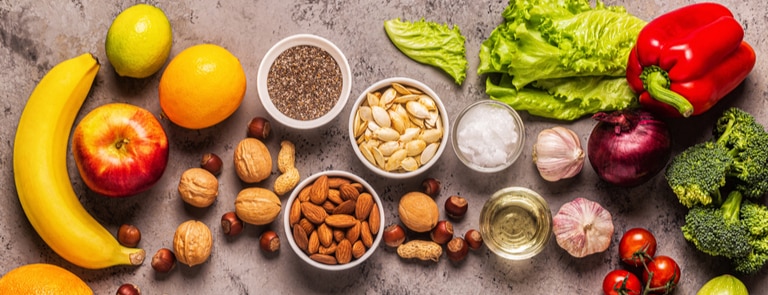10% off £25 OR 15% off £35
Code:BASKET
🏷️ 3 for 2 Mix & MatchOffersOffers Hub3 for 2 Mix & MatchBuy 1 Get 1 FreeOutletSave up to 1/2 PriceBuy one get one 1/2 priceGreat Savings1/2 PriceBetter than 1/2 priceShort DatedIntroductory Offer3 for £3 Mix & MatchBuy 6 for £15 Mix & MatchVitamins & SupplementsVitamins & Supplements HubVitamins & Supplements Shop AllCBDShop all CBDCBD OilCBD CapsulesCBD SprayCBD GummiesCollagen & SilicaHair, Skin & NailsShop all Hair, Skin & NailsHair GrowthFunctional MushroomsVitaminsShop all VitaminsMultivitaminsVitamin AVitamin BVitamin CVitamin DVitamin EVitamin KVitamin DrinksMineralsShop all MineralsMagnesiumIronZincCalciumSeleniumChromiumSupplementsShop all SupplementsFibre SupplementsAcidophilus & Friendly BacteriaPeppermint OilGrapeseed ExtractLecithinCollagen & SilicaOmega & Fish OilsPlant Sourced SupplementsSuperfood SupplementsArnicaApple CiderRaspberry KetonesAloe VeraChondroitin & MSMCo Enzyme Q10Evening Primrose OilGarlicGinkgo BilobaGlucosamineGlucomannanSeaweed, Kelps and Aquaceuticals5 HTPSaw palmettoCharcoalWomen's HealthShop all Women's HealthMenopauseMenstrual SupportUrinary Tract HealthPregnancy & ConceptionMen's HealthShop all Men's HealthProstate HealthChildren's HealthConditionShop all ConditionWater RetentionAllergy & Hay Fever CareAnxiety SupportBone & Muscle HealthMuscle Support & Joint PainBrain & Memory SupportWomen's HealthMen's HealthChildren's HealthPain ReliefCold & Immune SupportFatigueDigestive HealthHair, Skin & NailsHeart & CirculationLiver CareMood SupportSexual HealthSleep & RelaxationStress ReliefVisionHerbal & Licensed RemediesShop all Herbal & Licensed RemediesValerianSt John's WortRescue RemedyAgnus CastusAshwagandhaEchinaceaMilk ThistleDevil's ClawGinseng & GuaranaBlack CohoshHomeopathic & Flower RemediesShop all Homeopathic & Flower RemediesRescue RemedyTissue SaltsFlower RemediesHomeopathic RemediesAt-Home TestsVegan Vitamins & Supplements3 for 2 Mix & MatchBuy 1 Get 1 FreeOutletHolland & BarrettVitabioticsSolgarWeledaNew NordicBioglanBetterYouNatures AidGrass & Co.Nature's WayDairy FreeGluten FreeSesame Seed FreeCelery FreeCereal FreeCrustaceans FreeEgg FreeFish FreeKiwi FreeLupin FreeNew inFood & DrinkFood & Drink HubFood & Drink Shop AllVegan FoodHoney, Jams & SpreadsShop all Honey, Jams & SpreadsManuka HoneyHoneyJams & ChutneysNut ButtersSpreadsPateTeas & Hot BeveragesShop all Teas & Hot BeveragesTeaCoffee & Coffee SubstituteMushroom DrinksDried Fruit, Nuts & SeedsShop all Dried Fruit, Nuts & SeedsNutsDried FruitSeedsMixesSuperfoodsShop all SuperfoodsSuperfood PowdersMaca PowderGoji BerriesBaobabMoringa PowderFlaxseedSpirulinaChia SeedsSnacksShop all SnacksProtein BarsLow Calorie SnacksChocolate, Cakes & BiscuitsSavoury SnacksSweet SnacksSnack BarsCrisps & ChipsFlapjacksPopcornFood CupboardShop all Food CupboardHoney, Jams & SpreadsBreakfast CerealsSuperfoodsApple Cider VinegarCondiments & SaucesTinned FoodsRice, Pasta, Pulses & GrainsBreakfast CerealsShop all Breakfast CerealsCereals, Bran & FlakesGranolaMuesliOats & PorridgeBreakfast BarsDrinksShop all DrinksKombuchaNatural Energy DrinksJuicesSoft DrinksWaterAlcohol Free DrinksCookingShop all CookingCooking IngredientsApple Cider VinegarCondiments & SaucesSoya & Meat AlternativeSoup & Ready MealsRice, Pasta, Pulses & GrainsHerbs, Spices & SeasoningGravy & StockHome BakingShop all Home BakingBaking MixesBreadFlourSweeteners & Sugar AlternativesEgg SubstitutesDairy AlternativesShop all Dairy AlternativesOat, Rice & Hemp DrinksSoya DrinksNut DrinksCoconut DrinksNutritionally Complete Food3 for 2 Mix & MatchBuy 1 Get 1 FreeOutletHolland & BarrettNaturyaHeath & HeatherPukkaGrenadeMeridianTwiningsBionaNakdManuka DoctorGluten FreeDairy FreeEgg FreeWheat FreeMilk FreeSulphites FreeCelery FreeKiwi FreeMustard FreeFish FreeNew inSports NutritionSports Nutrition HubSports Nutrition Shop AllProteinShop all ProteinClear ProteinWhey ProteinMass GainersVegan ProteinDiet ProteinCaseinBars, Drinks & SnacksShop all Bars, Drinks & SnacksEnergy BarsEnergy DrinksProtein BarsProtein ShakesProtein SnacksNutritionally Complete FoodMeal Replacement ShakesPre Workout & EnergyShop all Pre Workout & EnergyPre WorkoutAmino Energy DrinksAmino Energy PowdersIntra WorkoutKetoPost WorkoutAmino AcidsShop all Amino AcidsAmino Energy PowdersAmino Energy DrinksBCAAL-LysineGlutamineCarnitineArginineCreatineShop all CreatineCreatine PowderCreatine CapsulesSports SupplementsShop all Sports SupplementsTestosteroneSports CollagenRehydrationShop all RehydrationElectrolytesEnergy GelsVegan Sports NutritionShop all Vegan Sports NutritionVegan ProteinVegan Protein BarsVegan Pre Workout & EnergyVegan Amino AcidsVegan CreatineSports AccessoriesShop all Sports AccessoriesBottles & ShakersFitness EquipmentFitness GoalShop all Fitness GoalRecoveryMuscle & StrengthLean MuscleEnergy & EnduranceDiet & Weight LossSave up to 1/2 Price3 for 2 Mix & MatchGreat SavingsOptimum NutritionPE NutritionUSNGrenadeApplied NutritionPhDSiSFoodspringHuelYfoodDairy FreeGluten FreeSugar FreeSoya FreeCelery FreeCereal FreeCrustaceans FreeEgg FreeFish FreeKiwi FreeNew inBeautyBeauty HubNatural Beauty Shop AllAromatherapy & HomeShop all Aromatherapy & HomePure Essential OilsBlended Essential OilsBase & Carrier OilsHolisticSkincareShop all SkincarePremium SkincareFace CareBody CareSun CareTanning & BronzingEye CareLip CareFoot CareHand & Nail CareSkin AilmentsSkin OilsCBD BeautyHair Skin & NailsWashing & BathingShop all Washing & BathingShampoo & ConditionerBathing AccessoriesShower Gel & Body WashDeodorantDentalHand WashSoapBath Soak & OilBody ScrubBath Bombs & SaltsFeminine CareIncontinence SupportHair CareShop all Hair CareShampoo & ConditionerHair ColouringHair MasksHair Oil & SerumHair Spray, Gel & MousseHair AccessoriesMother & BabyShop all Mother & BabyBaby Skincare & ToiletriesElectrical WellnessSexual Wellness3 for 2 Mix & MatchBuy 1 Get 1 FreeOutletDr OrganicFaith in NatureWeledaNaturtintTisserandSukinMiaromaQ+AEthiqueSo EcoAlcohol FreeParfum FreeParaben FreeSLS FreePalm Oil FreeGluten FreeCelery FreeCereal FreeCrustaceans FreeEgg FreeNew inCBDWeight ManagementWeight Management HubWeight Management Shop AllFat Burners, Binders & Appetite SuppressantsShop all Fat Burners, Binders & Appetite SuppressantsFat BurnersFat BindersAppetite SuppressantsSlimming TabletsShakes & Weight Management ShotsShop all Shakes & Weight Management ShotsMeal Replacement ShakesDiet ProteinDiet Food & DrinkShop all Diet Food & DrinkDiet FoodLow Calorie SnacksSlimming TeaExercise SupportShop all Exercise SupportFitness EquipmentMeal Replacement ShakesDiet ProteinProtein Bars3 for 2 Mix & MatchSave up to 1/2 PriceGreat SavingsOptimum NutritionGrenadeHolland & BarrettUSNPhDPulsinEat WaterNatures AidNew NordicSlimExpertDairy FreeGluten FreeSugar FreeWheat FreeNew inVeganHealth & WellnessShop all Health & WellnessJoints Bones & MusclesGut HealthHair Skin & NailsStress AnxietySleep & Relaxation3 for 2 Mix & MatchBuy 1 Get 1 FreeOutletHolland & BarrettWeledaVitabioticsDr OrganicSolgarNaturtintOptimum NutritionNew NordicHeath & HeatherBeurerDairy FreeGluten FreeParaben FreeSLS FreeAlcohol FreeParfum FreeWheat FreeSoya FreeSugar FreeEgg FreeNew inShop for your WellnessWomen's HealthMenstrual HealthMenopauseJoints, Bones & MusclesGut HealthHair, Skin & NailsImmunitySleep & RelaxationFood & DietChildren's HealthStress ReliefHealthy HeartEnergyLow Mood & DepressionConcentration & AlertnessEye HealthSexual HealthLearn about WellnessWomen's HealthPeriods & Cycle HealthMenopauseJoints, Bones & MusclesImmunityGut HealthFood & DietSports & FitnessSleep & RelaxationHair Skin & NailsAll articlesHealthFood & nutritionGut healthImmunityJoints, bones & musclesWomen's healthWellnessHair & skinMental wellbeingSeasonalSleep & relaxationSports nutritionRecipesAll recipesGluten freeLow sugarVeganDairy freePodcast
Weight Loss
There is no quick fix if you want to lose weight and keep it off. Eating a well-balanced diet and exercising is the best way but it requires willpower. Many people find joining a slimming club can help them stay on track.
View all topics
View all topics
- Health Hub Home
- Weight Management
- Weight Loss
Latest articles
Sign up for exclusive offers
Plus, get expert advice to support your health & wellness straight to your inbox when you sign up to Holland & Barrett emails.
Read our
privacy policy
Customer service
About us
Copyright © Holland & Barrett Retail Limited, 2023. All rights reserved. hollandandbarrett.com is a trading name of Holland & Barrett Retail Limited,. Registered office: Samuel Ryder House, Barling Way, Nuneaton, Warwickshire CV10 7RH. Registered in England: company no. 2758955. Registered VAT no. 211727395.














